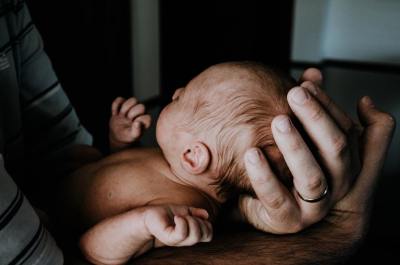What it would mean to overturn Roe

The U.S. Supreme Court decision in Dobbs v. Jackson Women's Health Organization, a case that directly challenges our country's abortion regime, will have repercussions far beyond the confines of abortion law. Should the court's decision in Dobbs overturn Roe v. Wade and Planned Parenthood v. Casey, then the future of legal abortion in America will truly be transformed.
Should Roe and Casey stand, not only will it be business-as-usual for the culture of death; it will also likely change the nature of partisan politics in the United States. The pro-life cause, particularly in Christian circles, has made support for the GOP a virtual Kantian moral imperative for many years. And the one area in which former President Donald Trump can be said to have exceeded expectations was that of federal judicial appointments, especially to the Supreme Court.
In the past, Republican appointees to the Supreme Court have consistently delivered very little. David Souter, Sandra Day O’Connor, and everyone’s favorite anthropological mystic Anthony Kennedy all proved catastrophically weak in this area. Indeed, it was a Reagan appointee — Kennedy — who came up with the definition of personhood as pure autonomy and mystical subjectivity in Casey. At some point the failings of GOP appointees must surely cease to be regarded as anomalies and instead be seen as a pattern.
With six Republican appointees on the Roberts' court, a failure to overturn Roe in Dobbs would reveal a hard truth. It would confirm suspicions that many of us have harbored for many years: Pro-life rhetoric is great for votes, and for energizing the religious base, but not much else. In the future, a vote for the GOP on the basis that it will change abortion laws would seem vulnerable to Dr. Johnson’s comment on second marriages: the triumph of hope over experience.
A ruling in Dobbs that overturns Roe will not only dispense with badly reasoned law and protect at least some of the innocent. Laws do not simply provide the legal terms by which society is organized; they also reflect the kind of society we aspire to be. When evidence emerged that the United States had tortured prisoners in Abu Ghraib, some called for the legalization of such methods on the grounds that they could then be regulated. Yet it seemed obvious that for the United States to do so would be to abandon any aspiration to the moral high ground in such matters.
It is true that a state’s hypocrisy and ethical inconsistency are bad; but they are not as bad as the institutionalization of evil. The same applies to abortion: Its institutionalization is an evil, both for the lives it destroys and for the subhuman notion of adult humanity that it presupposes and, by codifying in law, promotes. It is part of a culture of death, for sure; but it is also part of a culture that rejects the idea that the dependent status of the weak carries with it moral obligations for the strong — indeed, that dependency and obligation to one another are what make us truly human.
Using Dobbs to overturn Roe will therefore move our society slightly closer to a more accurate understanding of what it means to be human. Abortion is couched in the language of choice and liberty, something that strikes an obvious — and cynical — rhetorical chord with the American soul; but in reality it reflects a profoundly defective anthropology, according to which every individual is sovereign and everybody else we encounter, even our own children, are to be considered first and foremost a threat to that sovereignty.
As both Carter Snead and Erika Bachiochi have recently argued, this defective anthropology has perverted both bioethics and feminism, turning them into the very opposite of what they claim to be. Human beings are not primarily independent sovereign agents with rights; rather, we are dependent rational creatures. We have obligations to those dependent upon us because we too were dependent as children and will be dependent again in our dotage.
Abortion is simply one way in which a fictional notion of what it means to be human is reflected in our culture and enabled by law. In denying the obligation of the mother and father to the child, legal abortion denies not simply the personhood of the child in the womb, but also the humanity of the mother and the father.
And so repealing such law would not only protect the innocent, but also affirm the truth about humanity and remind us of our innate obligations to others. The Supreme Court should overturn Roe and Casey in Dobbs. This would be a strike against Kennedy’s bizarre definition of personhood in Casey and push society toward a proper concept of what it means to be an adult human person: one who understands obligations toward dependents. Republican-appointed justices who do not understand that are no friends to conservatism — or to humanity.
Originally published in First Things.
Carl R. Trueman is a professor of biblical and religious studies at Grove City College. He is an esteemed church historian and previously served as the William E. Simon Fellow in Religion and Public Life at Princeton University. Trueman has authored or edited more than a dozen books, including The Rise and Triumpth of the Modern Self, The Creedal Imperative, Luther on the Christian Life, and Histories and Fallacies.





















